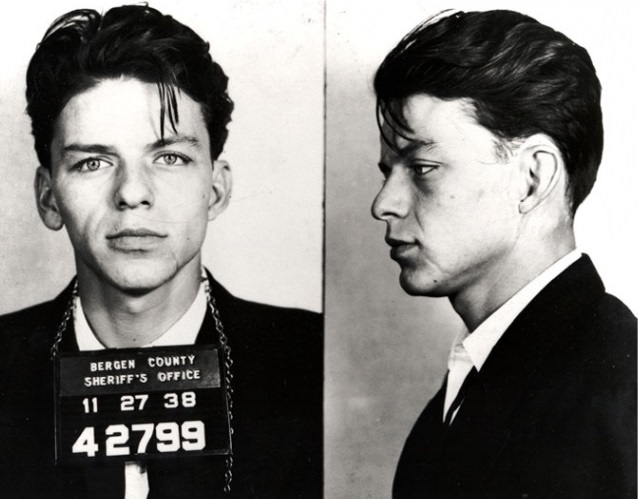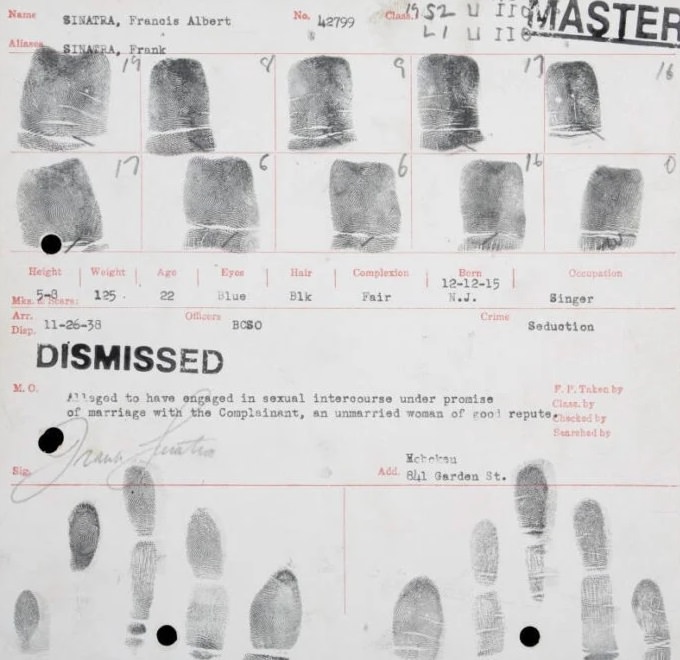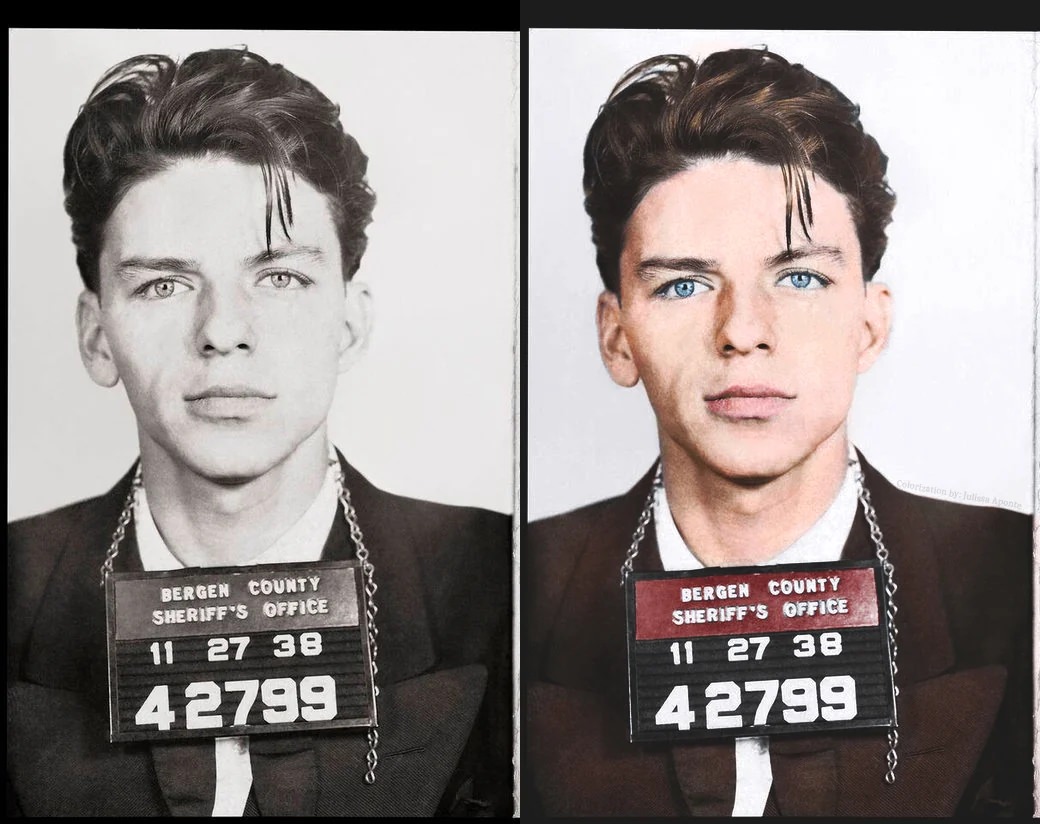Frank Sinatra, a name synonymous with talent, charisma, and timeless style, remains one of the most celebrated entertainers in history. From his early days as a crooner to his later years as an acclaimed actor, Sinatra’s life was filled with memorable moments and a level of fame that few could rival. However, one lesser-known but fascinating chapter of his story is the tale behind his infamous mugshot. This article delves into the circumstances surrounding this iconic image, revealing a side of Sinatra’s life that many fans may not be familiar with.
A Young Sinatra: Ambition and Early Struggles
Born on December 12, 1915, in Hoboken, New Jersey, Francis Albert Sinatra was determined to make a name for himself as a singer from a young age. Inspired by the likes of Bing Crosby, Sinatra began performing in local clubs and dance halls, honing his craft and developing his unique style.
During the early years of his career, Sinatra faced numerous challenges, including a difficult relationship with his parents, a lack of steady income, and the harsh realities of trying to break into the competitive world of show business. Despite these obstacles, Sinatra remained focused on his goal, slowly but surely making a name for himself as a talented and captivating performer.
The Incident: November 26, 1938
On November 26, 1938, Frank Sinatra found himself on the wrong side of the law. The 23-year-old was arrested in Bergen County, New Jersey, and charged with seduction and adultery. The charges stemmed from an alleged affair with a married woman named Antoinette Della Penta.
At the time, Sinatra was a struggling singer, yet to achieve the level of fame that would later come to define his career. The arrest and subsequent mugshot were a far cry from the suave and sophisticated image Sinatra would later cultivate as one of the world’s most beloved entertainers.
The Mugshot
The black-and-white mugshot taken of Sinatra on that fateful day in 1938 offers a fascinating glimpse into the early life of a man who would go on to become a global icon. The photograph captures a young, clean-shaven Sinatra, his hair neatly combed and his expression solemn. His attire, consisting of a suit and tie, is a testament to the sharp sense of style that would become one of his trademarks.



The Aftermath: Charges Dropped and a Rising Star
As it turned out, the charges against Sinatra were eventually dropped. The seduction charge was based on a dated and rarely enforced law that prohibited unmarried men from engaging in sexual relations with married women. When it was discovered that the woman in question, Antoinette Della Penta, was actually single and had fabricated her marital status, the case fell apart, and Sinatra was released without further incident.
Though this brush with the law could have derailed Sinatra’s budding career, he remained undeterred in his pursuit of fame and success. In the years following his arrest, Sinatra’s career took off as he joined the Tommy Dorsey Orchestra, ultimately becoming one of the most popular and influential singers of the 20th century.
Sinatra’s mugshot serves as a reminder of the obstacles he faced and overcame in his quest for stardom. Despite this early setback, Sinatra went on to achieve incredible success as a singer, actor, and cultural icon. His legendary status in the entertainment industry remains unrivaled, with a career spanning more than five decades and countless accolades, including 11 Grammy Awards, an Academy Award, and the Presidential Medal of Freedom.
The Legacy of Frank Sinatra’s Mugshot
Over the years, Frank Sinatra’s 1938 mugshot has become an iconic image, representing the resilience and determination of a young man on the cusp of fame. The photograph serves as a reminder of Sinatra’s humble beginnings and the challenges he faced before achieving superstardom.
In the years following the incident, Sinatra’s life and career continued to be marked by both triumphs and controversies. His romantic relationships, friendships with members of the infamous Rat Pack, and alleged connections to organized crime all added to the mystique surrounding his persona. Yet, through it all, Sinatra remained a consummate entertainer, captivating audiences with his smooth voice, magnetic stage presence, and undeniable talent.



Corrections:
Sinatra was 22 years old in November 1938.
The complaint, as written in the fingerprint report dated November 26th 1938, was “an unmarried woman of good repute”. She doesn’t seem to be claiming to be married but of being tricked into sexual intercourse “under promise of marriage”. The report classifies the crime as “Seduction”, not adultery.
He was also arrested several times on charges of disorderly conduct, assault, and other misdemeanors throughout his life.